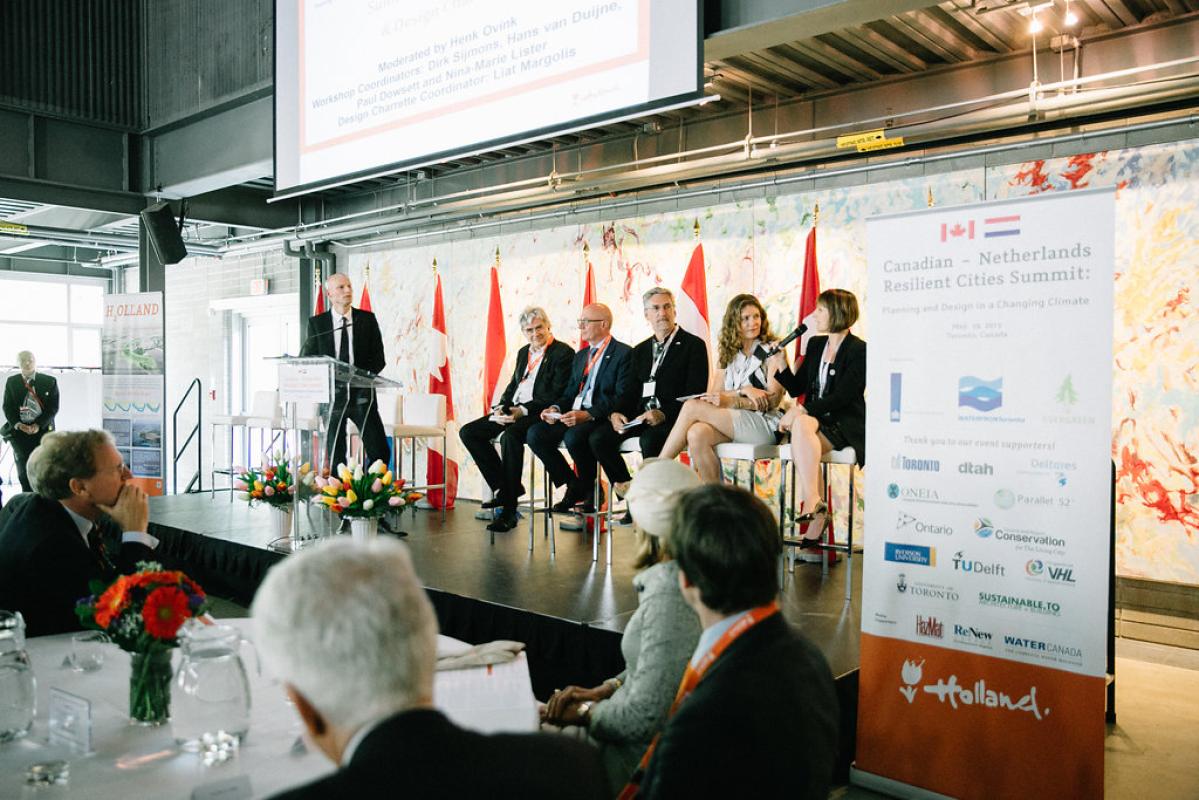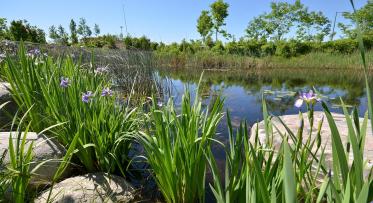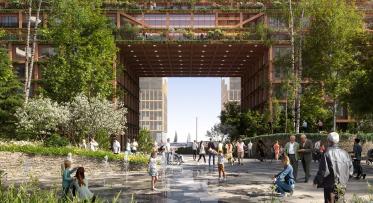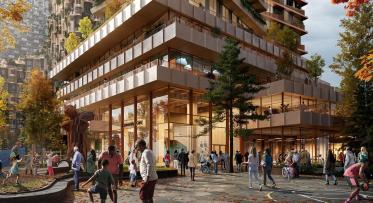Exchanging Ideas on Planning and Design in a Changing Climate
Canadian – Netherlands Resilient Cities Summit brought together experts from both countries to discuss and work on joint solutions to real issues and challenges for mitigating and adapting to a changing climate. (Photo: Connie Tsang)
PUBLISHED: JUNE 30, 2015
BY: ANNA PALAMARCHUK & CAROL WEBB
In Toronto, and elsewhere around the world, we are seeing the impacts of climate change. Extreme weather events are more frequent and severe, and changes in weather patterns more evident. The Climate Change Adaptation and Health Equity Background Report by the Clean Air Partnership notes that Toronto has experienced an average temperature increase of 2.7°C since the late 1800s and more precipitation has been arriving in heavy rainfall events, such as the storm that washed out a part of Finch Avenue on August 19, 2005 and the record rainfall on July 8, 2013 that closed transit and roadways, stranded commuters and knocked out power in several areas across the city.
To tackle these urgent issues created by climate change, the Canadian-Netherlands Resilient Cities Summit brought together thought leaders to explore matters such as urban flood protection, designing resilience strategies, soil management and reuse, and the economics of infrastructure. As noted by the Consul General of the Netherlands, Ann van Leeuwen, “the topics discussed at this event are amongst the most important challenges and threats that the world is currently facing.”
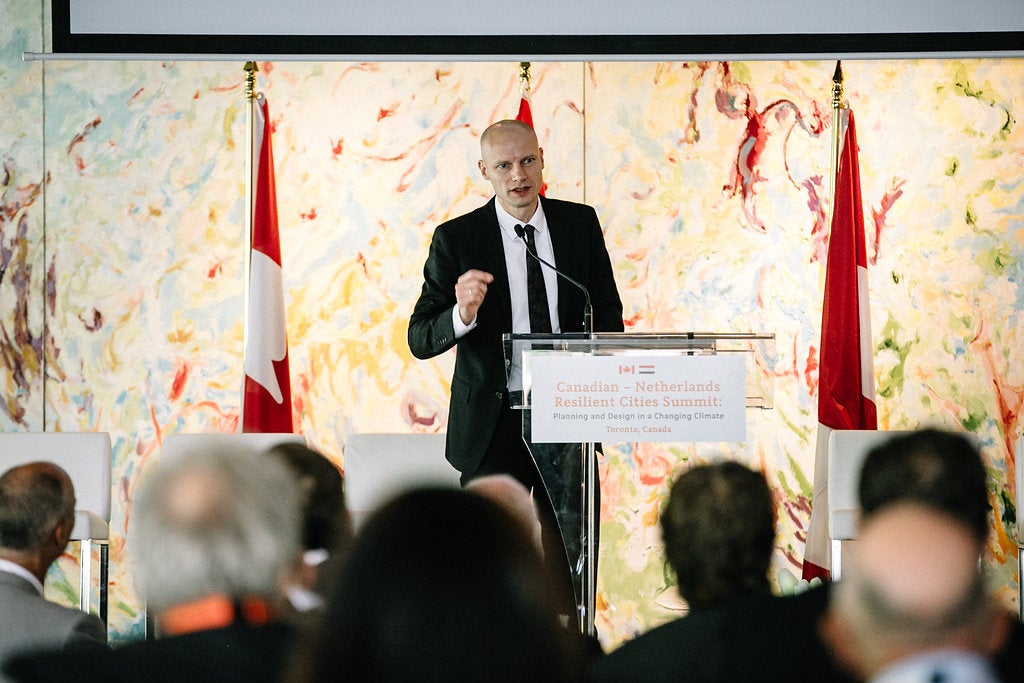
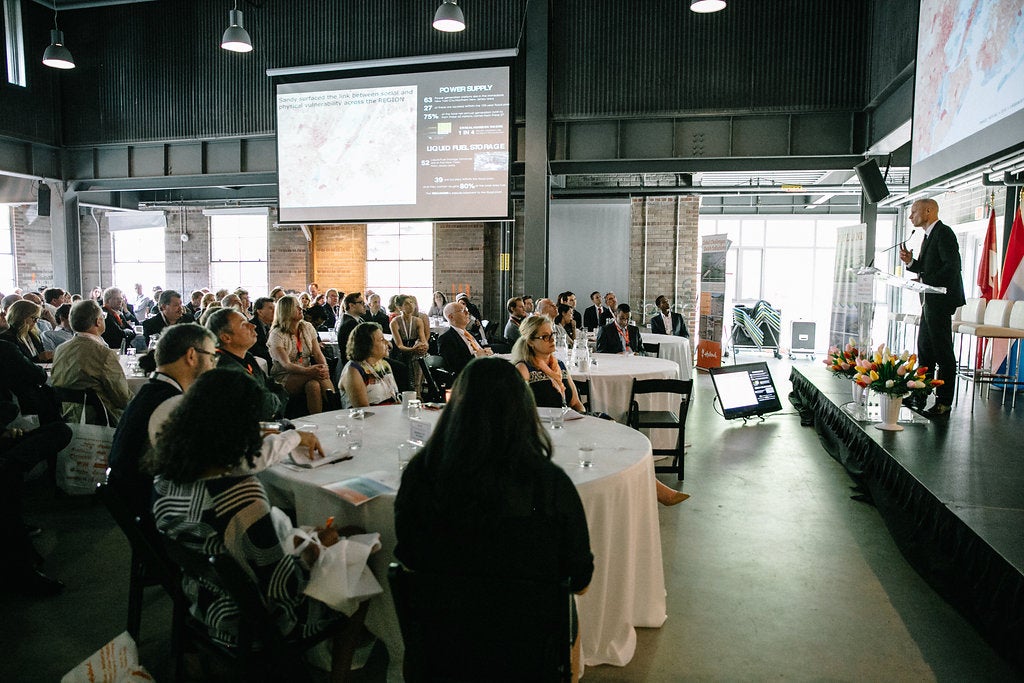
Henk Ovink: We need places that transform so we can show the world we can do better. (Photos: Connie Tsang)
Plenary sessions included an inspiring presentation by Henk Ovink, Special Envoy for International Water Affairs for the Kingdom of the Netherlands. Henk is recognized world-wide for his expertise in water management and currently serves as a senior adviser to the task force responsible for rebuilding the US Northeast after Hurricane Sandy. Actually, the objective of the task force is much more than to just rebuild, it’s to radically rethink the region’s infrastructure in light of climate change.
In addition, their Majesties King Willem-Alexander and Queen Máxima of the Netherlands attended the summit as part of their first state visit to Canada. King Willem has been active in water management for the past two decades, campaigning for the right to water and sanitation, including chairing the United Nations Secretary-General's Advisory Board on Water and Sanitation, and making important contributions to the worldwide water agenda. His Majesty has consistently demonstrated a genuine interest and expertise in water management and shared this passion with the attendees.
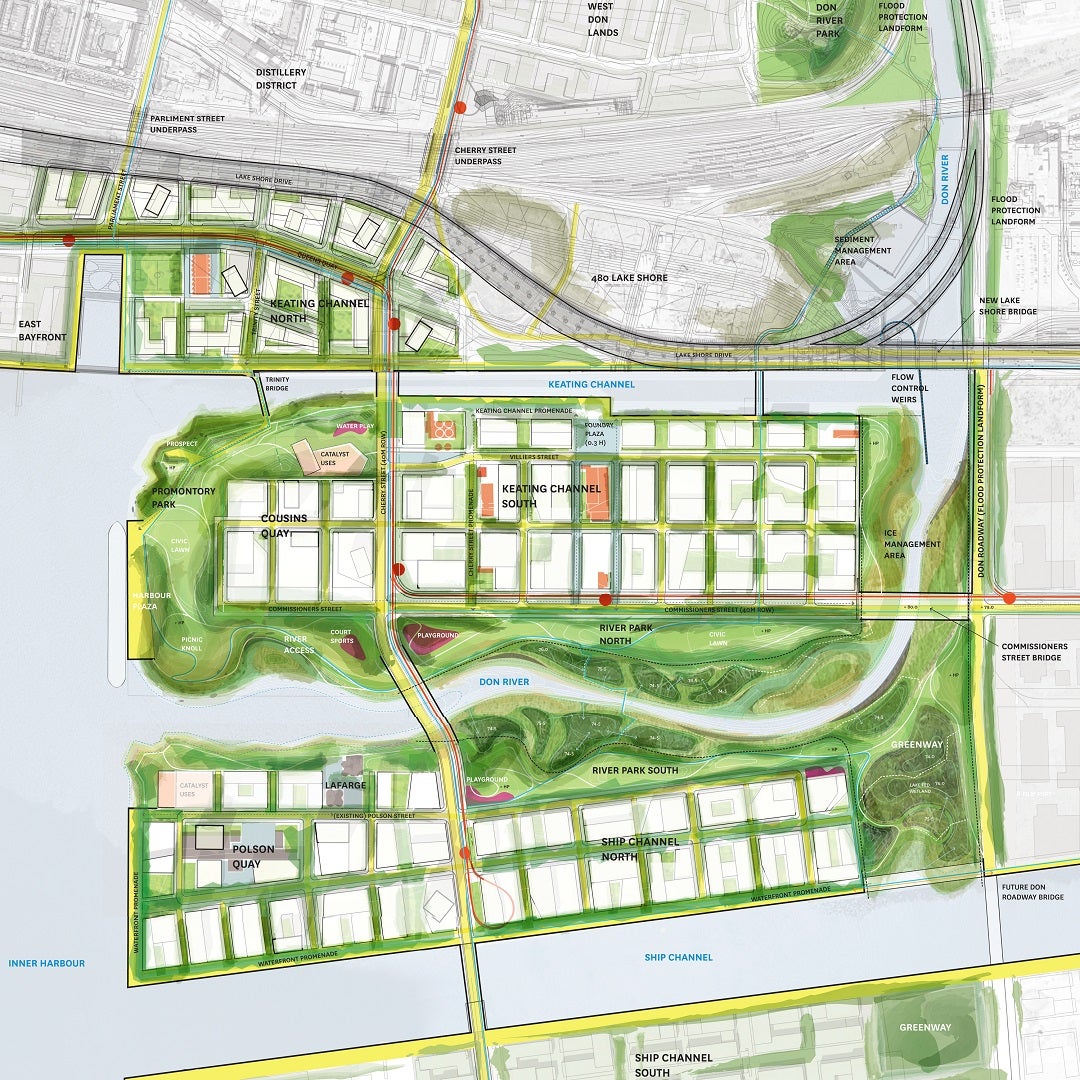
Naturalizing the mouth of the Don River
Waterfront Toronto contributed its expertise in the area of urban flood protection in a workshop that featured the Don Mouth Naturalization and Port Lands Flood Protection Project. This project, together with the Dutch “Room for the River Project”, served to showcase the planning and design principles of flood protection as well as the challenges and lessons learned. Participants explored mutual learnings and shared experiences from projects around the world facing similar flood issues.
Waterfront Toronto’s proposed project is an excellent example of innovative flood protection that will transform the existing mouth of the Don River into a healthier and more naturalized river outlet. Removing the Port Lands, a 356 hectare site, from the flood plain will not only unlock the development potential for vital urban growth, but will also provide opportunities for expanded green-space, natural habitat, and an improved public realm.
The Port Lands, once part of the largest wetland on the great lakes, was lake-filled beginning in the 1880s to support industry and today sits largely abandoned. The plan to flood protect and transform this massive brownfield site to include sustainable mixed use communities will reclaim the wonder of the Don River and will stand as an example of climate change resilience and sustainable development for cities around the world.
Waterfront Toronto also participated in a workshop focused on soil management and re-use. Table sessions focused on identifying policy changes and barriers as well as brainstorming sessions and lessons learned from the Netherlands.

